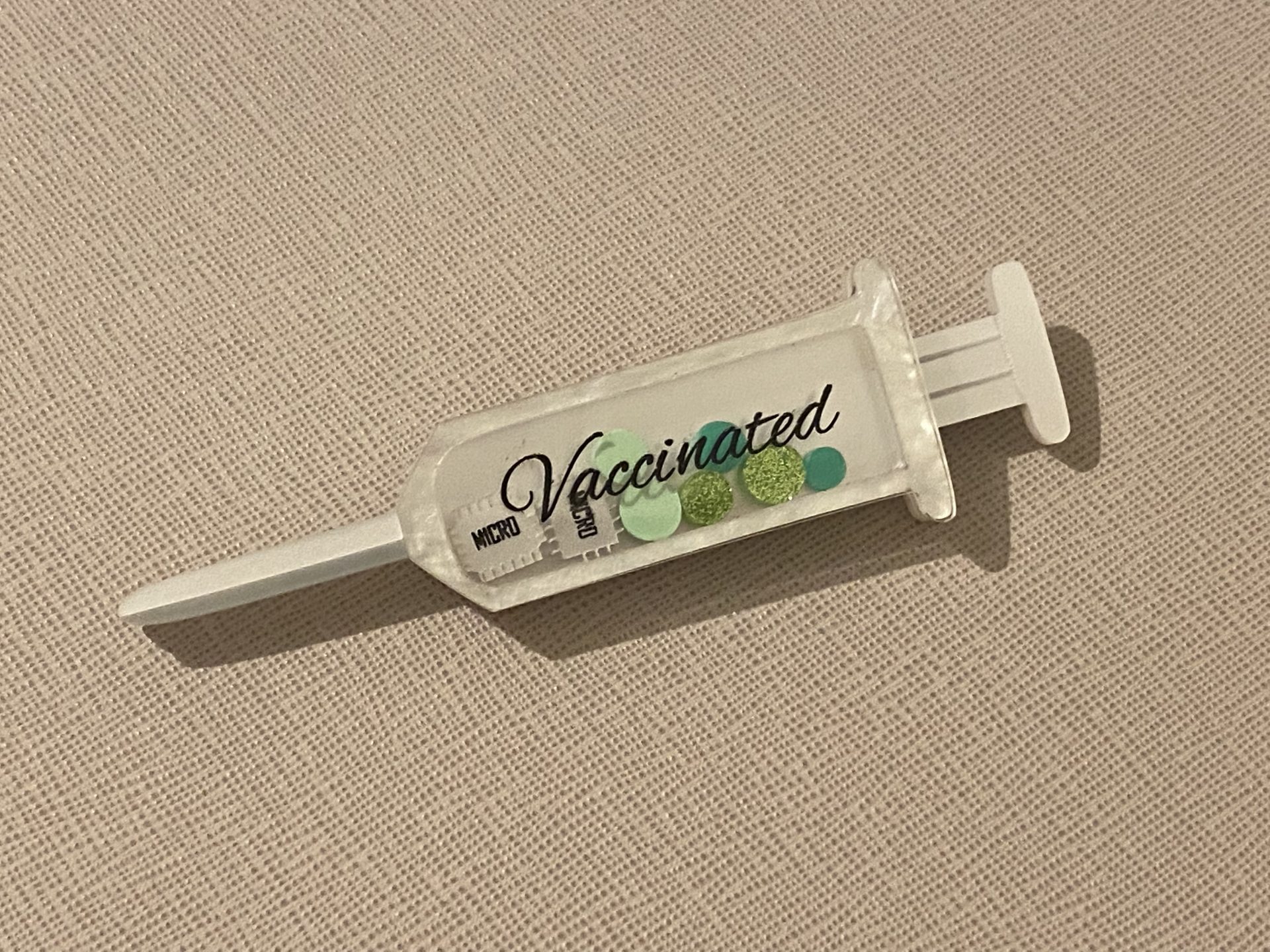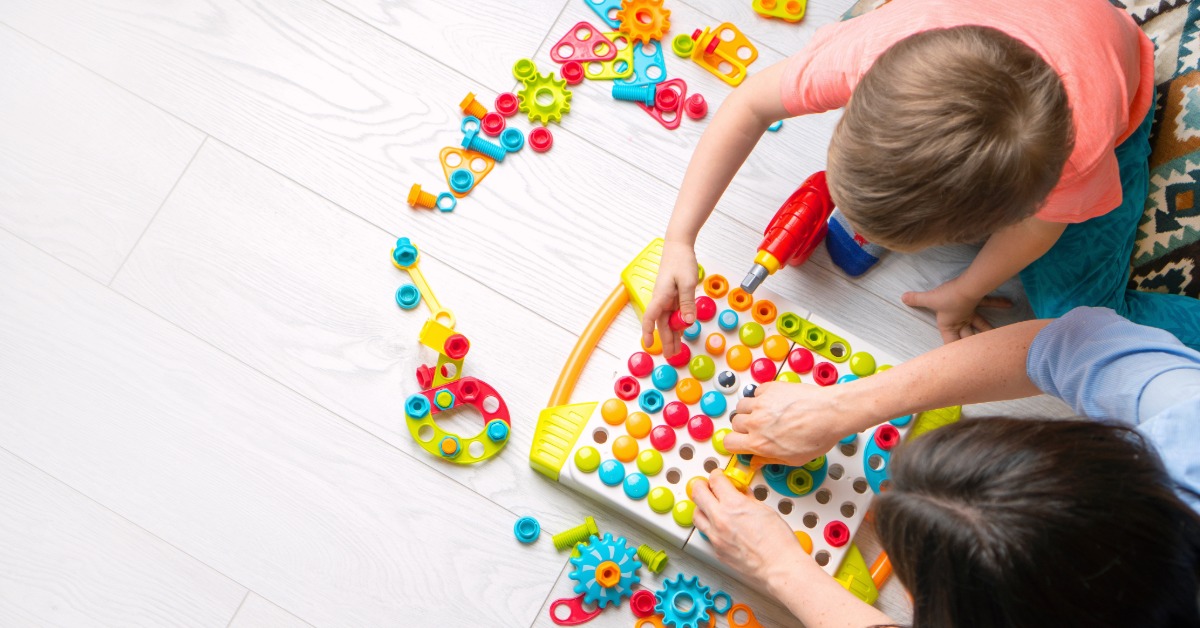What an autistic-inclusive vaccination experience looks like in Canberra

As an autistic person living in Canberra, the pandemic has been a bit of a rollercoaster ride for me. Some really positive things have come out of it and there’s also been moments where I’ve felt quite sad and worried.
Contact free delivery with no social expectation to meet the driver halfway down the street has been fantastic. The normalisation of doing all your shopping online has been great. Successfully working from home? Game changing for disabled people the world over.
I’m an introvert, but I’ve still found lockdown and other restrictions tough to navigate. I fully support the public health measures, but it has brought about a whole host of new rules to learn and new unwritten social rules to put my foot in.
Knowing what to do or say when other people don’t socially distance has been tricky. Do I say something? Do I keep moving? I’m exhausted because I’m out in public and there’s so much to mentally process! What if I need to stop and they don’t keep moving? Do I say something? What will happen? Argghhhhhhhhhhh
The Karen culture of the pandemic terrifies me. My expression of confusion is often misinterpreted by non-autistic people who don’t understand autism as aggression or irritation. When I’m out in public, I’m always genuinely worried that someone’s going to film me and put me on the internet.
Mask wearing is tough for me. I have anxiety and sometimes I have panic attacks which the mask only exacerbates because it’s closer to a gag than a paper bag. I do qualify for an exemption, but worry about the social implications of not having an easy way to communicate that need at scale e.g., the Meet And Assist Service (MAAS) stickers airlines give me or the sunflower lanyard approach used in the UK for hidden disabilities.
When it came time to book my COVID jab in, I headed straight to the booking website the day my age cohort was released. I was excited to get vaccinated but equally daunted by what to expect on the day.
My husband is in a different age group to me and his first vaccination appointment was coming up the following weekend. Knowing mine would be at least a few weeks away, I booked into the same clinic as him so he could be my guinea pig and tell me what to expect.
Less than a week later, Canberra went into its second lockdown.
My husband’s vaccination appointment was on the third day of lockdown and when he got home, he just looked at me and said “I need to tell you what to expect, because I think you’re going to struggle”.
He assured me that the nurses were absolutely lovely and the actual jab itself was quick and easy, but he felt the process steps that came before that might be challenging for me if I were to become overwhelmed by bright lights, sounds and simply being in public after so long away.
A few weeks later, I learned of the existence of the Access and Sensory Clinic when it was announced they were moving in early September. They were moving from Garran to Weston Creek, and an Access and Sensory COVID-19 testing clinic was also opening up in Garran covering two vital public health services in an accessible way. I thought to myself that sounded exactly like something I needed, but immediately brushed it off thinking that NDIS participation would be a requirement to use the clinic. I’m not on the NDIS because my needs are met through other channels.
My thinking changed when, after nearly a month in lockdown, I needed to go to a pharmacy to refill my anxiety medication. The lights were bright, the room was fuzzy, sounds were loud, my glasses were fogging up from the mask and the instructions and questions around my prescription were confusing. I was surrounded by signs warning against ‘inappropriate behaviour’ and I just felt completely overwhelmed and vulnerable in that space.
I sat in the car afterwards and thought to myself, there is no way I’ll be able to get vaccinated without autism-friendly supports and reasonable adjustments.
I immediately picked up the phone and called the Access and Sensory Clinic to see if I could book in there.
I had no idea what I was going to say. I didn’t even stop to think. I just did it. A lovely lady answered and in my rambling word vomit I blurted out that I’m autistic, not on the NDIS but need a calm, quiet and well supported environment to get vaccinated in.
She was absolutely wonderful. She listened to me without interrupting and was extremely supportive. She confirmed that I absolutely met the criteria to use the clinic and that it would offer me a much quieter, calmer and clearer experience. The clinic was still moving locations and not yet taking bookings, but I was on the list. I was so happy! It was a massive weight off my shoulders and I felt so seen as a person.
Two days later, I received a call from an equally lovely team member to book me in. He openly and calmly shared with me: appointment time options, details about the clinic environment, information on the professional expertise of the vaccination team and what to expect on the day. He also asked me what my support needs were. I needed three things: clear instructions, a low sensory-impact environment (AKA no fluorescent lights) and the ability to bring a support person. All my requirements were accepted. Appointments are longer, with one-on-one support throughout and lighting is low and natural. He sought consent before recording his notes and read them back to me first which is really important.
It was a very good autism-friendly experience. There was no rushing or pressure and once again, I felt supported and validated.
September 28 rolled around quickly and I woke up feeling really excited! I put on a fun sparkly silver dress with slashed bishop sleeves that were just made for vaccination appointments and topped it off with a rainbow stripe mask and a novelty vaccination brooch. Everything I wore was purchased from small businesses owned by women-identifying individuals – many of whom have been impacted by the pandemic.
When I arrived at the clinic, I did experience some challenges but the level of support I received from the wonderful nurses and team was fantastic.
My glasses were fogging up from my mask, I couldn’t find the QR code and I was confused when the code took me away from the Check-in Canberra app. I did it three times because I thought I’d made a mistake. I found it difficult to mentally process the logistics of needing to remove my rainbow stripe mask and replace it with a new one in an indoor space – it was a lot for me. I was overwhelmed, confused and terrified I was deep in ‘Karen’ territory, but I had nothing to worry about because the context of my invisible disability was known and everyone was very patient with me.
The check in nurse came straight over and told me “You’re OK. We’re different here and we’re going to look after you”. And they did. I was given the judgement-free choice of putting my comfortable rainbow stripe mask back on or removing it all together. That’s the first time the idea of me being exempt has felt completely ordinary which was beautifully validating for me as a disabled person.
I left my support person in the waiting room because I wanted some quiet time and was promptly taken to a private room for vaccination. The room had plenty of open space and had four chairs, normalising the idea of having a support person or carer present for the appointment. The lighting was low and natural to the point that I barely noticed it – this is excellent from a sensory processing perspective! The jab itself was painless and the nurse talked me through everything she was doing.
My 15 minutes of observation time was spent having quiet alone time in that same private room and the nurse came back to check in right before the timer went off which was great. My next appointment was booked seamlessly on my behalf and I was given not one, but three opportunities to request an alternate time and date. I kept the one I was given because it was absolutely perfect for me, but I really liked the inclusive and supportive approach.
I lost my cute jab sticker in the car somewhere on the way home, but I will get another one in just over 3 weeks when I go back for Round 2 which I’m genuinely looking forward to. I’m so grateful for the work, kindness and efforts of our nurses (at Canberra Health Services), security teams and ACT Health that makes safe spaces like the Access and Sensory Clinic possible for people who need a different approach.
The Access and Sensory Clinic is all about making services accessible. There’s no ‘proof’ required to use it and lots of different types of people benefit from using it. People who faint easily and need to be vaccinated lying down. People with phobias of needles, crowds and big spaces. People with anxiety. These are all people who benefit from the service the same way I have.
It’s one of those cases where something that supports the needs of disabled people additionally benefits the entire community. This is what inclusion looks like in practice.
Keep up the amazing work!
Ashlea McKay is People and Culture Lead at Parbery. The image accompanying this blog is a photo of the gorgeous handmade brooch that Ashlea wore to her vaccination appointment. It was made by Kerri of Coup de Colere Designs in Brisbane.


